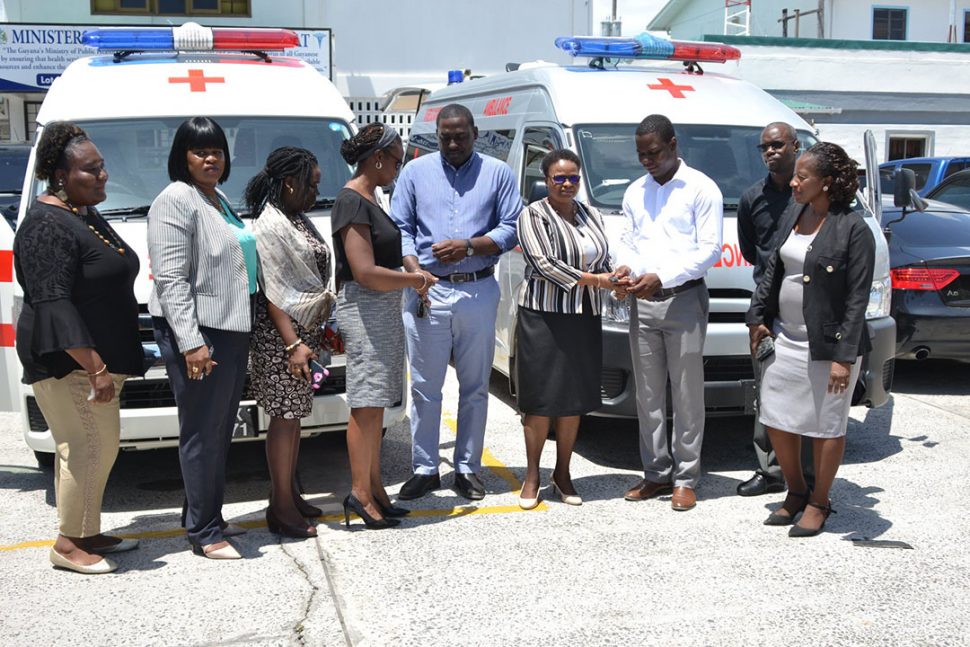Two new ambulances, expected to be put into operation immediately, were officially handed over to the Regional Health Officers (RHOs) of Region Three and Region Four on Wednesday.
The vehicles, valued at $31.5 million, were purchased with funding from a $1.6 billion (US$8 million) Inter-American Development Bank loan, according to a Department of Public Information (DPI) report.
The loan, which was approved in 2016 for a project to address the high rates of maternal and neonatal deaths in the country, covers interventions in regions Three, Four and Nine. The procurement of the ambulances falls under a component of the project to provide better services and strengthen the network for transporting neonates and their mothers.
The DPI report said the ambulances are fully equipped with emergency gear, including resuscitation kits, collapsible stretchers, oxygen and a detachable incubator.
Minister of Public Health Volda Lawrence, who spoke at the handing over ceremony, said that she expected that much thought and care will be put into it ensuring that the vehicles are put on a maintenance schedule, that the persons who are employed to drive and the ambulance attendants are held accountable for the equipment and the items in here are placed in a stock ledger so there can be a handover at the end of shifts.
Region Three RHO Dr Cerdel McWatt and Region Four RHO Dr Quincy Jones were reported as saying that ambulances are critical to the improved level of health care delivery for expectant mothers and their babies.
“We have received initially a boat and engine to serve the Santa Mission and Sand Hill areas in the Demerara River so this new vehicle is the second phase which will aid in the Maternal and Child Health programme and the region’s health programme as a whole,” McWatt was quoted as saying.
Jones added that it is the first time that the ambulance would complement the upgrade of the CC Nicholson Hospital, which will become a maternal institution where low-risk mothers-to-be will be able to deliver.
IDB Country Representative Sophie Makonnen, who was also present, was reported as saying that she was satisfied with the pace of the project and the number of interventions being rolled out, while noting that each region has equally benefitted. “Issues of maternal and neonatal deaths are pretty high per capita in Guyana, so this is an important programme for the citizens of the country. So, these ambulances are specifically geared and equipped for expectant mothers and their newborns,” she said.









